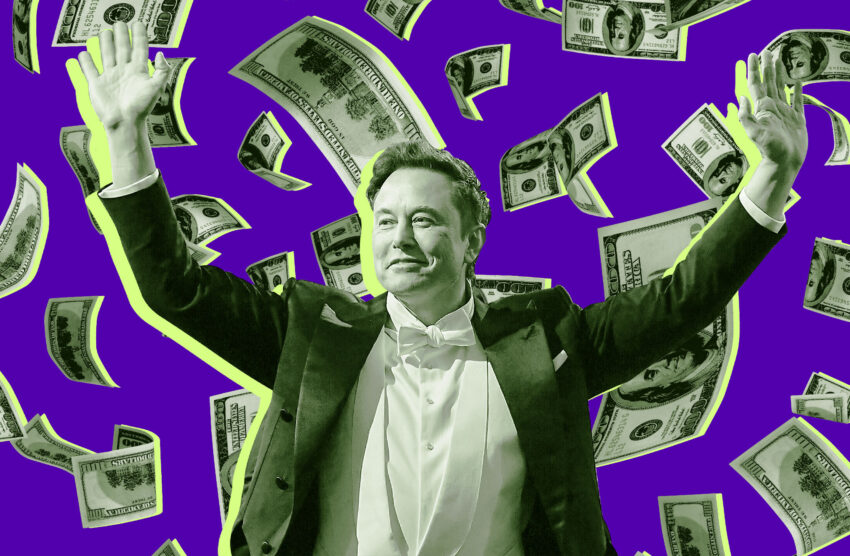
tesla shareholders approve elon musk s 1 Tesla shareholders voted Thursday to approve Elon Musk’s staggering new pay package, in a move aimed at retaining the controversial CEO’s leadership during a time of great upheaval for the automaker.
tesla shareholders approve elon musk s 1
Shareholder Approval and Vote Details
In a significant decision, over 75 percent of shares voted in favor of the proposal, granting Musk enormous sway over his electric vehicle company. This approval not only solidifies Musk’s position but also awards him the largest corporate payout in history. The final tally of the vote is expected to be disclosed in a Securities and Exchange Commission filing in the coming days.
Musk took the stage at the shareholder meeting in Austin, Texas, to chants of “Elon! Elon!” and was flanked by dancing Optimus robots, a nod to his ambitious vision for the future of Tesla. “What we’re about to embark upon is not merely a new chapter of the future of Tesla, but a whole new book,” he declared, setting an optimistic tone for the company’s trajectory.
The Pay Package Breakdown
The proposed pay package, put forward by Tesla’s board last September, would award Musk more than 423 million additional shares. This increase would elevate his stake in the company from approximately 15 percent to about 25 percent. However, this lucrative compensation is contingent upon Musk achieving a series of ambitious milestones over the next decade. Key objectives include:
- Raising Tesla’s market capitalization from its current $1.5 trillion to $8.5 trillion.
- Putting into service 1 million robotaxis.
- Selling an additional 12 million cars.
- Securing 10 million Full Self-Driving subscriptions.
- Producing 1 million humanoid robots.
These targets reflect Musk’s vision of transforming Tesla from an electric vehicle manufacturer into a comprehensive technology and robotics powerhouse. However, the feasibility of these goals has been a topic of debate among shareholders and industry analysts.
Concerns from Shareholders
Despite the overwhelming approval from shareholders, the vote was not without dissent. Some of Tesla’s largest shareholders, including Norges Bank Investment Management, which manages Norway’s sovereign wealth fund, expressed opposition to the pay proposal. Additionally, smaller public pension funds, such as the American Federation of Teachers and various New York City retirement systems, also voiced their concerns.
Major proxy advisory firms, including Institutional Shareholder Services and Glass Lewis, have publicly opposed the pay package. Their objections stem from concerns about the appropriateness of such a massive compensation plan, especially in light of Musk’s previous compensation package, which was valued at over $50 billion but was invalidated by a Delaware court last year. The court found that Tesla’s board lacked sufficient independence from Musk, raising questions about governance and accountability.
Legal Challenges and Governance Issues
The previous compensation package had been approved by shareholders on two separate occasions, yet the court upheld its ruling blocking it. Tesla has since appealed the decision to the Delaware Supreme Court, a move that underscores the ongoing legal challenges facing the company. The ruling prompted Musk to engineer a proposal to relocate Tesla’s legal home from Delaware to Texas, which shareholders also approved. This shift is seen as part of Musk’s broader strategy to consolidate his control over the company while navigating complex legal landscapes.
Strategic Implications of the Pay Package
The new pay package comes at a critical juncture for Tesla, as the board continues to push the narrative that the company is on the verge of becoming a leader in artificial intelligence and robotics. This narrative is particularly important given the competitive landscape in the automotive industry, which has become increasingly crowded with traditional automakers and new entrants alike.
However, the reality is that Tesla’s position appears to be more precarious than ever. Musk’s controversial actions and statements, including his support for President Donald Trump and his role in the Department of Government Efficiency, have sparked nationwide protests and led to a significant drop in sales. The expiration of the federal electric vehicle tax credit is expected to exacerbate these challenges, potentially leading to an even steeper decline in sales.
Challenges in Achieving Milestones
Whether Musk can achieve the ambitious goals outlined in the new pay package remains uncertain. Tesla rolled out its first robotaxi service in Austin earlier this year, but the service fell short of Musk’s earlier predictions. Currently, the robotaxis still require safety monitors, either in the driver or passenger seat, although Musk has suggested that these could be removed by the end of the year.
Moreover, Tesla’s only new product since 2020, the Cybertruck, has been widely considered a consumer flop. Initial excitement has waned, and the vehicle has faced numerous delays. As a result, competition from other automakers, particularly those in China, has begun to erode Tesla’s market share and strain its resources.
The Broader Context of Musk’s Leadership
Musk’s leadership style and decision-making have been scrutinized extensively. His ambitious vision for Tesla has often been accompanied by a willingness to take risks that some investors find unsettling. While his supporters argue that his bold approach has driven innovation and growth, critics contend that it has also led to volatility and uncertainty.
The approval of the new pay package can be seen as a double-edged sword. On one hand, it provides Musk with the financial incentive to focus on Tesla’s long-term growth and innovation. On the other hand, it raises questions about the sustainability of such a compensation model, particularly in light of the company’s current challenges.
Future Outlook for Tesla
As Tesla navigates this complex landscape, the implications of Musk’s new pay package will likely unfold over the coming years. The ambitious goals set forth in the proposal will require not only Musk’s leadership but also a concerted effort from the entire organization to adapt to changing market conditions and consumer preferences.
Investors and analysts will be closely monitoring Tesla’s progress in achieving the outlined milestones. The company’s ability to deliver on its promises will be crucial in maintaining shareholder confidence and ensuring its position as a leader in the electric vehicle and technology sectors.
Conclusion
The approval of Elon Musk’s $1 trillion pay package marks a pivotal moment for Tesla, reflecting both the confidence of shareholders in Musk’s vision and the challenges that lie ahead. As the company seeks to redefine its role in the automotive and technology industries, the stakes have never been higher. The coming years will be critical in determining whether Musk can turn his ambitious plans into reality, or if the company will face setbacks that could jeopardize its future.
Source: Original report
Was this helpful?
Last Modified: November 7, 2025 at 7:40 pm
0 views















